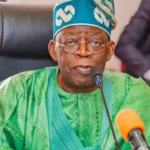
• Executive, Legislators Agree On Jan-Dec Fiscal Year
Over four weeks after passage of the 2017 Appropriation Bill by the National Assembly, Acting President Yemi Osinbajo, on Monday signed the budget christened “Budget of Economic Recovery and Growth” into law at about 4.42pm.
The assent reportedly followed a June 10, 2017 letter to Senator Udoma Udo-Udoma, Minister of Budget and National Planning, by President Muhammadu Buhari, directing that the acting President performs the task because it is in the interest of the nation’s economy.
According to Senior Special Assistant to the President on Media and Publicity, Garba Shehu, the letter followed the receipt of the full brief on the 2017 Appropriation Bill as passed by the National Assembly, adding that it underscores “the unity at the highest level of government”.
Speaking while signing the budget, Prof Osinbajo agreed that the budget reflects the Muhammadu Buhari administration’s commitment to ensuring a strong linkage between the medium-term Economic Recovery and Growth Plan (ERGP) that was recently launched and the annual budgets.
He agreed that Presidential assent was “considerably delayed,” a situation he blamed on disagreements over changes introduced to the original document sent to the National Assembly.
“The executive took the view that the changes fundamentally affected some of our priority programmes and would make implementation extremely difficult and in some cases impossible.
“It is as a result of that understanding and the outcome of our detailed engagements that we feel able to sign the 2017 Appropriations Bill into law today.”
The decision to assent the budget followed agreement with the leadership of the National Assembly, according to the acting President “to return to a predictable January to December fiscal year.”
The most important agreement, he continued, is “that the leadership of the National Assembly has given us a commitment that the National Assembly will re-instate the budgetary allocations for all the important executive projects, such as the railway standard gauge projects, the Mambilla Power Project, the Second Niger Bridge, the Lagos-Ibadan Expressway etc. which they had reduced to fund some of the new projects they introduced.
“This re-instatement will be by way of an application for virement by the Executive which they have agreed will be expeditiously considered and approved by the National Assembly.”
The return to January-February fiscal year, he continued is significant since it aligns “with the financial year of most private sector companies, underscoring the crucial relationship between government and the private sector.”
In line with this, body arms of government, he added, agreed that the 2018 budget proposal would be submitted to NASS in October, which the legislators are committed to passing into law before the end of this year.
“I must, once more, express my appreciation to the leadership of the National Assembly, for the collaborative spirit in which these discussions were conducted.”
The budget expected to see the Nigerian economy out of recession, he continued, has projected revenue of N5.08tr and aggregate expenditure of N7.44tr, translating to a projected fiscal deficit of N2.36tr to be financed largely by borrowing.
To check the growing public debt profile now a huge source of concern to many, Osinbajo said the Federal Government is working at growing government revenues as well as plugging revenue leakages, assuring however that the borrowings are still within sustainability limits.
Notwithstanding this, he assured that government is “determined, in the medium term, to reduce our reliance on borrowings to finance our expenditures.”
Continuing, he said “the signing of the budget today will trigger activities in the domestic economy which will lead to job creation and more opportunities for employment, especially for our youth. And, as I indicated earlier, we will be returning to the National Assembly to seek upward adjustments by way of virements in relation to a number of critical projects which have received inadequate provision in the budget just passed by the National Assembly.”















